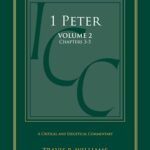Jesus, Friend of Sinners and Sovereign Ruler
When we think of Jesus, what comes to mind? My thoughts immediately turn to His sacrificial love for me on the cross. I think of hymns and texts of Scripture that talk about Jesus being a friend. Hymns like:
- What a Friend we have in Jesus
- Jesus, Savior, blessed friend
- I’ve Found a Friend in Jesus
The Pharisees called Jesus a “Friend of sinners” in Luke 7:34 in order to insult Him. But I like that description of Jesus, because I am a sinner, and I am thankful that He pursued me. I love to meditate on what Jesus has done for me—that He is my Friend. But what if that is the only way we thought of Him? What if we never considered that He is the holy, sovereign Lord of the universe, the Judge of all who oppose Him?
We cannot make sense of the judgments in Revelation 6–19 if we only see Jesus as our Friend.
The Context of the Tribulation Judgments
In Revelation 5, we have this beautiful story that unfolds right before the tribulation judgments begins. The eschatological scene opens with God the Father sitting on His throne, holding a scroll. This scroll had writing on the front and the back, and it was rolled up and sealed with seven seals. An angel speaks up and asks, “Who has the authority to open the seals of the scroll?” But no one in heaven or earth was able to open the scroll and look into it (v. 3). John in his vision begins to weep because no one can open the scroll. But one of the twenty-four elders stops John, and says that there is One who is worthy to open the seals. He is the Lion of the tribe of Judah, the Root of David, who has overcome.
We learn more about this Lion in the next verses. We read that dozens of created beings in heaven bow down in worship to “the Lamb” (John 1:29). And they sing in worship to the Lamb because He is worthy to open the scroll and break the seals. He is worthy because He gave His life for sinners and purchased for God people from every tribe, tongue, people, and nation” (v. 9). The lens comes into focus—the One who is worthy to open the seals of the scroll is the Son of God, the Messiah, Jesus. All of heaven joins in worship, praising the Lamb of God for His sacrifice that purchased our redemption and gave Him the right to open the scroll.
So what is the scroll? What are its contents? And what is the cause for all of the fanfare leading up to the opening of the scroll?
What is the Scroll?
The scroll appears to be a legal document. An example of this kind of document from the ancient near East would be a will, which would be sealed with seven seals. Under Roman law, the reading of the will had to be witnessed by the seven people who were responsible for sealing it.
The timing of this event in Revelation coincides with the opening of the books that was prophesied by Daniel in Daniel 7:9–14, which help us to understand its contents.
What are the Contents of the Scroll?
Following the opening of the books in Daniel 7:10 and Revelation 5:7, the tribulation judgments begin. And this document that is protected with seven seals is not mentioned again, except for the seals being opened throughout the tribulation judgments. I would suggest that the content of this scroll includes the outworking of God’s future plan as displayed in the judgment on those who oppose Him and the blessing of those who follow Him.
Why does Revelation Make a Big Deal about the Scroll?
If the contents of the scroll are the coming tribulation judgments, then the opening of the scroll is the unfolding of God’s plan. This plan serves as an answer to a centuries-long question of believers, “How long, O Lord?” There is only One who is worthy to open the scroll and reveal its content. He is the Lamb who was slain, the Lion of the tribe of Judah.
Christ alone is worthy to unfold the final judgments on mankind, and this should point us to His trustworthiness in at least three ways. First, we can trust Him to vindicate us believers who have been longing for our enemies to receive to justice. Second, we can trust Him to be gracious even as He judges. One of the amazing features of the tribulation judgments is the longsuffering nature of our God. Even though many will see the judgments and know they are from God, they will still fail to repent. Revelation 16:9 describes people who recognize that the judgments are from God and blaspheme His name, instead of repenting. Amazingly, God is ready to forgive, and even in the tribulation judgments gives opportunity for people to repent. Third, we can trust that Christ will win. He will accomplish His purposes. The entire earth and all of the powers of hell may rise up against King Jesus, but He will destroy them with a word (Rev 19:15).
Jesus is a friend of sinners, but He is also Lord and Judge. In the end, He will vindicate those who trust in Him, and no one will be able to hold back His hand or say to Him, “What have You done?” (cf. Dan 4:35).
Jesus, what a Friend for sinners.
Jesus, lover of my soul.
Friends may fail me, foes assail me.
He, my Savior, makes me whole.
Hallelujah! What a Savior!
Hallelujah! What a Friend!
Saving, helping, keeping, loving.
He is with me to the end.



